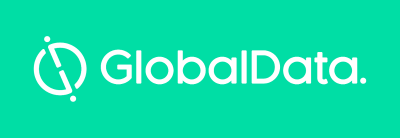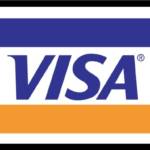 While no single vendor will come to dominate Blockchain, as the vendor community has accepted building success here is a ‘team sport’, it’s likely ‘the usual suspects’ will still end up in the forefront of CIOs wanting to get on board with the technology.
While no single vendor will come to dominate Blockchain, as the vendor community has accepted building success here is a ‘team sport’, it’s likely ‘the usual suspects’ will still end up in the forefront of CIOs wanting to get on board with the technology.
That’s the pragmatic conclusion out of a new study into Blockchain from independent data and analytics company GlobalData, whose Technology Analyst Charlotte Dunlap has just issued a new in-depth analysis of the field.
Specifically, Dunlap contends that it will be platform services who are likely to dominate in the emerging blockchain industry:
“Computer [industry] leaders such as IBM, Microsoft, Oracle and others have stepped up technology investments in the past 18 months, largely through R&D labs and participation in Open Source software bodies including the Linux Foundation’s Hyperledger project, which is a series of OSS blockchain tools and solutions. This activity alone is critical because, as participating vendors like to say, ‘Blockchain is a team sport’, [as] distributed ledgers are built out of a collaborative effort by multiple parties, so everyone has to be on board with the same methodology.”
The context to this investment, she argues, is that tech suppliers are watching rising interest in the buy side of the equation:
“Businesses will come to realise that blockchain is a technology play and solution providers with expertise in infrastructure and platform technologies are most likely to successfully capitalise on this new market opportunity.
“In particular, organisations are looking to application platforms giants such as IBM, Oracle, SAP and Microsoft, with their ability to gain traction through tens of thousands of customers in disparate industries.
If you liked this content…
“These public cloud platform providers are actively building blockchain into their respective PaaS (Platform-as-a-Service) offerings, not only as an additional blockchain network service but also as a foundational platform capability; eventually these services will support and interoperate with line of business products.
“Further, blockchain will be a future enabler of Internet of Things (IoT) efficiency, scalability, security and cost management and a facilitator of IoT applications such as supply chain track-and-trace. Software and equipment vendors and service providers are likely enterprise suppliers.”
Dunlap predicts the big platform providers will offer Blockchain tools and frameworks to initially help application developers create smart contracts in which they can not only capture data, but act on that data and attach rules to it – so, for example, only appropriate parties may view documents.
That could be a compelling prospect for user organisations, she argues: “Consider the possibility of information on products and supply chains being able to reach customers and partners weeks earlier than previously allowed through traditional business processes: imagine the effect such efficiencies could have on businesses in terms of visibility, validation and ensuring accuracy.”
And given how Blockchain is increasingly attractive for its “ability to address the increasing inefficiencies and fraud associated with current methods of doing business”, she contends, something that is costing some companies millions of dollars and requiring significant numbers of IT staff simply to run those cumbersome business systems, no wonder that:
“Many in the industry have concluded that the current methodology for tracking and transporting goods and manually creating and maintaining legal contracts is broken” – a factor that gives Blockchain a big chance.







